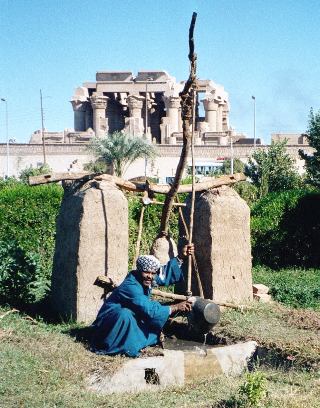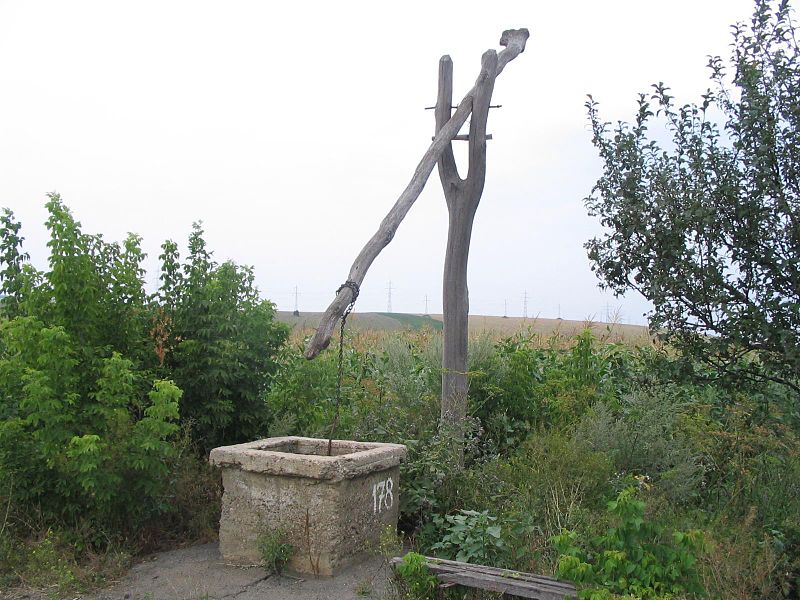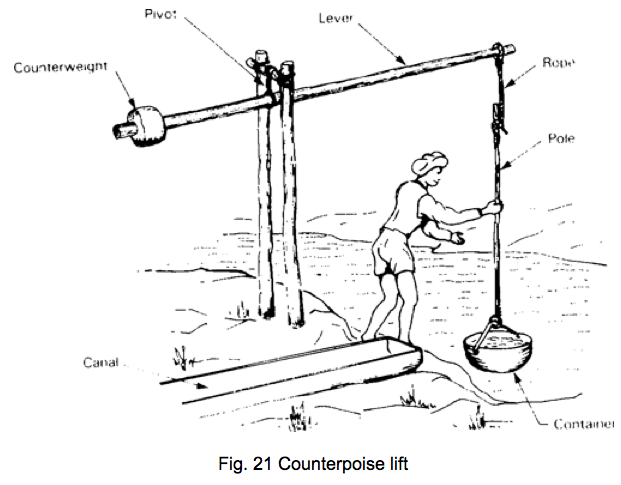Counterpoise lift

A shadoof in Egypt. Photo:Egypt.KomOmbo.Shaduf

A shadoof in Eastern Romania. Photo: Shaduf-romania.
Also known as shadoof, shaduf, dhenkli or picottach, the counterpoise lift consists of a long wooden pole and is generally used for lifting water from unlined wells, streams or ponds and for irrigating small fields. A weight, often a large stone or a ball of dried mud or a basket filled with small stones is fixed at the shorter end of the pole to counterpoise the weight of a filled bucket which is attached to the longer arm of the pole with a rope. The bucket is emptied by a sideways tipping motion. This device is used to lift water up to a height of 1 - 3 metres. About 2000 litres of water can be lifted from the depth of 2 to 3 metres in one hour.
Contents
Suitable conditions
Construction, operations and maintenance
Costs
Field experiences
Reference manuals, videos, and links
Acknowledgements
- Water lifting devices. Agricoop.nic.in
- Water lifting devices. Inseda.org
